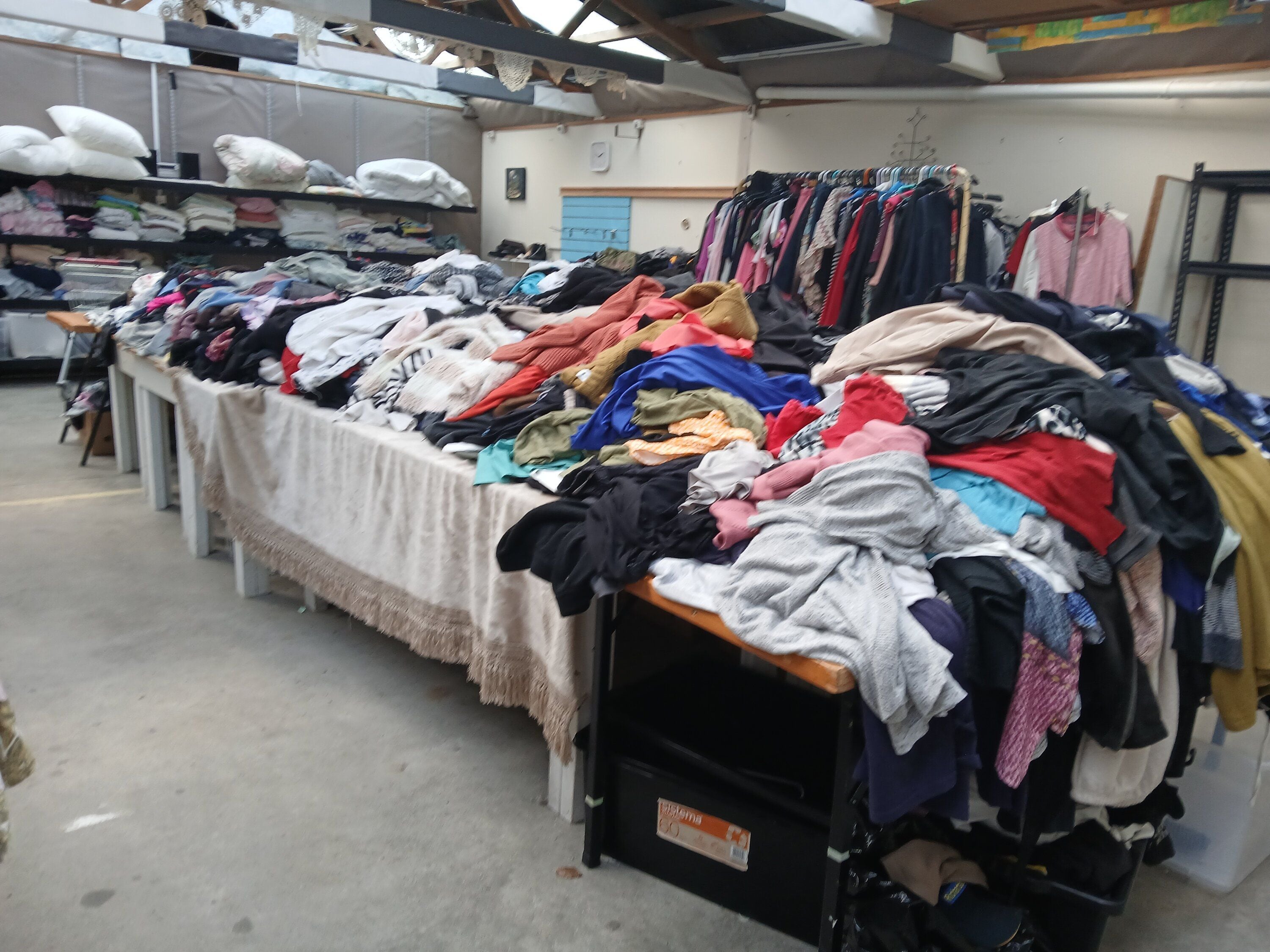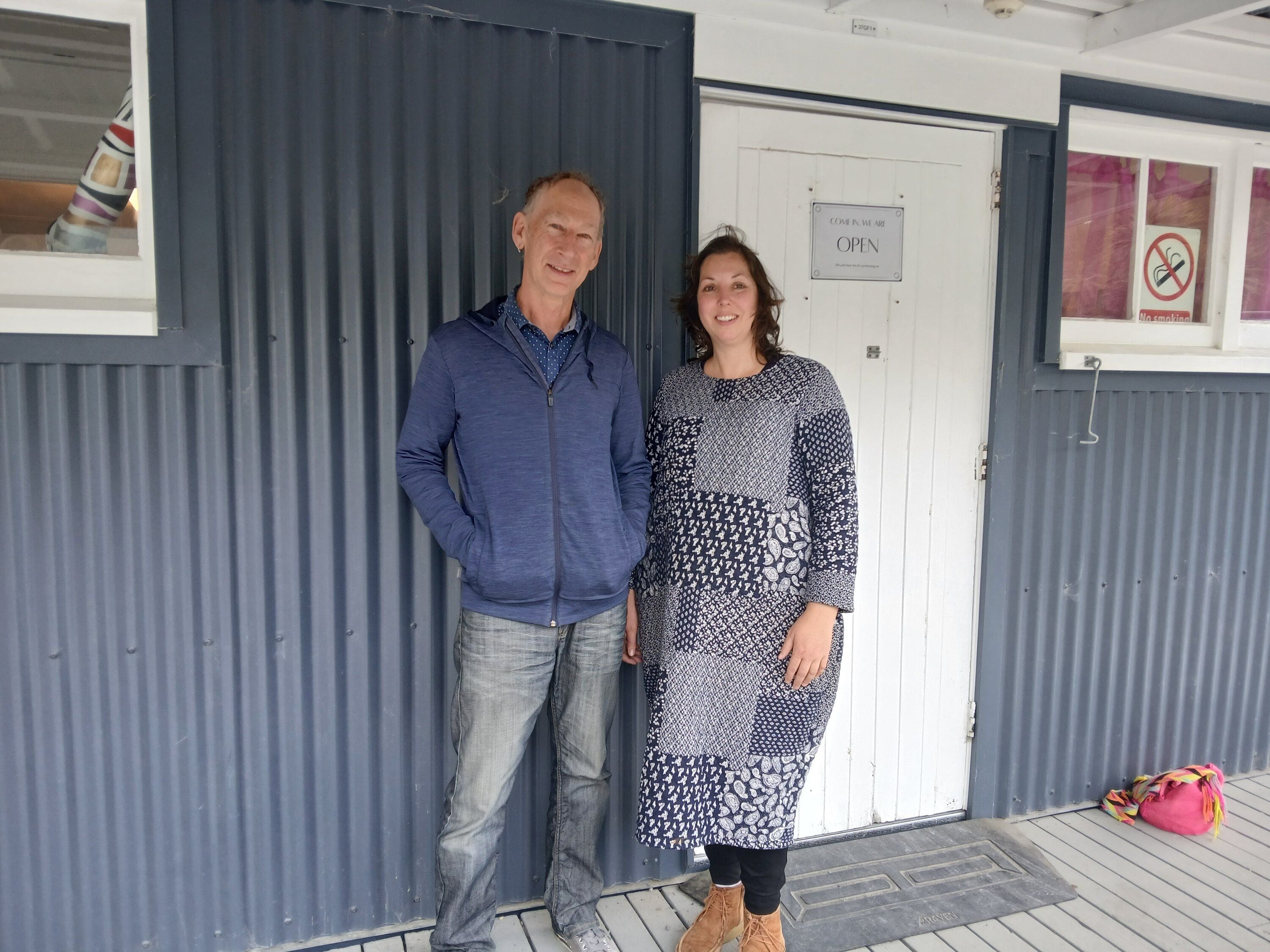Diverting secondhand clothes away from landfills to help combat climate change while raising funds for addiction and recovery services is a double win for two Tauranga organisations.
“We’ve lost that way of repairing and mending, and I guess with clothing, it’s viewed as a disposable item these days,” Envirohub project co-ordinator Milly McHardie said.
Nearly 180,000 tonnes of clothes are diverted to New Zealand landfills annually, and McHardie said she blames consumer culture and fast fashion.
McHardie and her four-women team at EnvironHub joined forces with Turning Point Trust, a recovery service in the Tauranga Historic Village.
“They collect clothing from these op shops, so it’s just the excess or things they’re getting rid of,” McHardie said. “A lot is still good stuff.”

Envirohub project co-ordinator Milly McHardie. Photo / Tom Eley.
Envirohub diverted 750 kilograms of clothing and raised over $2500 for Turning Point.
Seven hundred people turned up to purchase clothes at the shed near Bobby’s Fish Market on the Tauranga waterfront, McHardie said.
“We had a huge queue at the door, everyone waiting to go. We’re already thinking of planning another one.”
The clothes sold on the day were priced at $1, and 2500 clothing items were sold to customers overall.
“Climate change is quite a heavy, depressing topic. I am very aware of that, so the idea is to celebrate what locals are doing.”
McHardie, who earned a dual degree in fashion and business at AUT, built a relationship with the recovery service.
“We built a bit of a relationship and thought we could use our platform to get rid of a bit more of it (clothes) and raise more money.”
Turning Point Recovery Services hosts a fortnightly $5 fill-a-bag evening, said clothing and textile co-ordinator Melissa Keillor.

A mountain of clothing at Turning Point Recovery Services. Photo / Tom Eley.
“There are amazing clothes, and the hospice is just overrun. When they finish a season, they can’t sell, so they kick it to us,” Keillor said.
“We can sell anything from 800 to 1000 pieces over two days. "
The organisation prides itself on meeting people where they are on their addiction and recovery journey.
“All of our staff have gone to intentional peer support.”
Most of the kaimahi at Turning Point have some form of lived experience where they have faced an addiction or mental health battle of their own.
“Some people in my team that have come into the service a few years ago hiding from the world,” Keillor said.
“But if they see potential and you shift them in the right direction, they find a safe community.”
Turning Point’s general manager Tim Jackson said the store would like to take in even more clothes but needs somewhere else to store them.
“Diverting from waste and providing opportunities for our people to not only just clothe themselves and clothe our community cheaply,” Jackson said,
“But also provide some activity and employment opportunities.”

Turning Point general manager Tim Jackson and clothing and textile co-ordinator Melissa Keillor. Photo / Tom Eley.
On Turning Point Row at the Village, there is a slew of services, including an arts and crafts room, clothes storage, a kitchen dining room, and Imagings, a shop run by their community members.
Turning Point will receive 15% of the sale proceeds, but the rest will go to the community member at the shop.
“It gives people an opportunity to work and learn,” Keillor said.



0 comments
Leave a Comment
You must be logged in to make a comment.